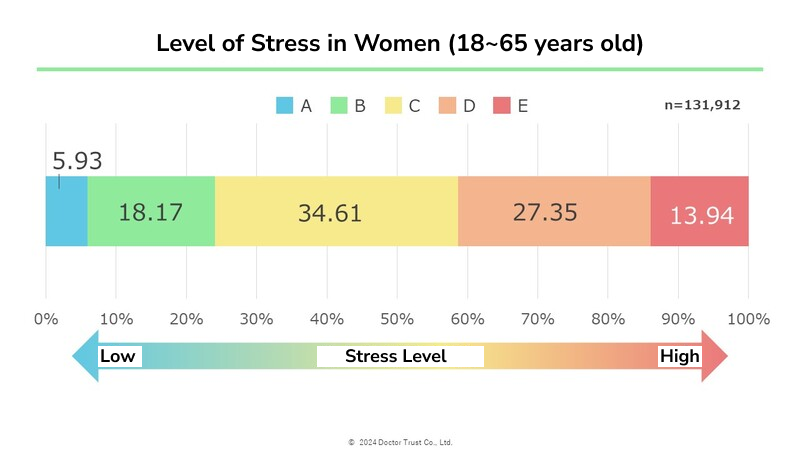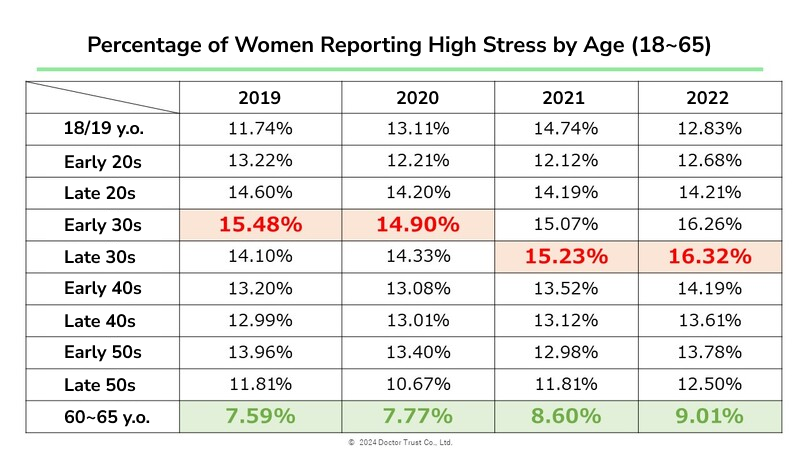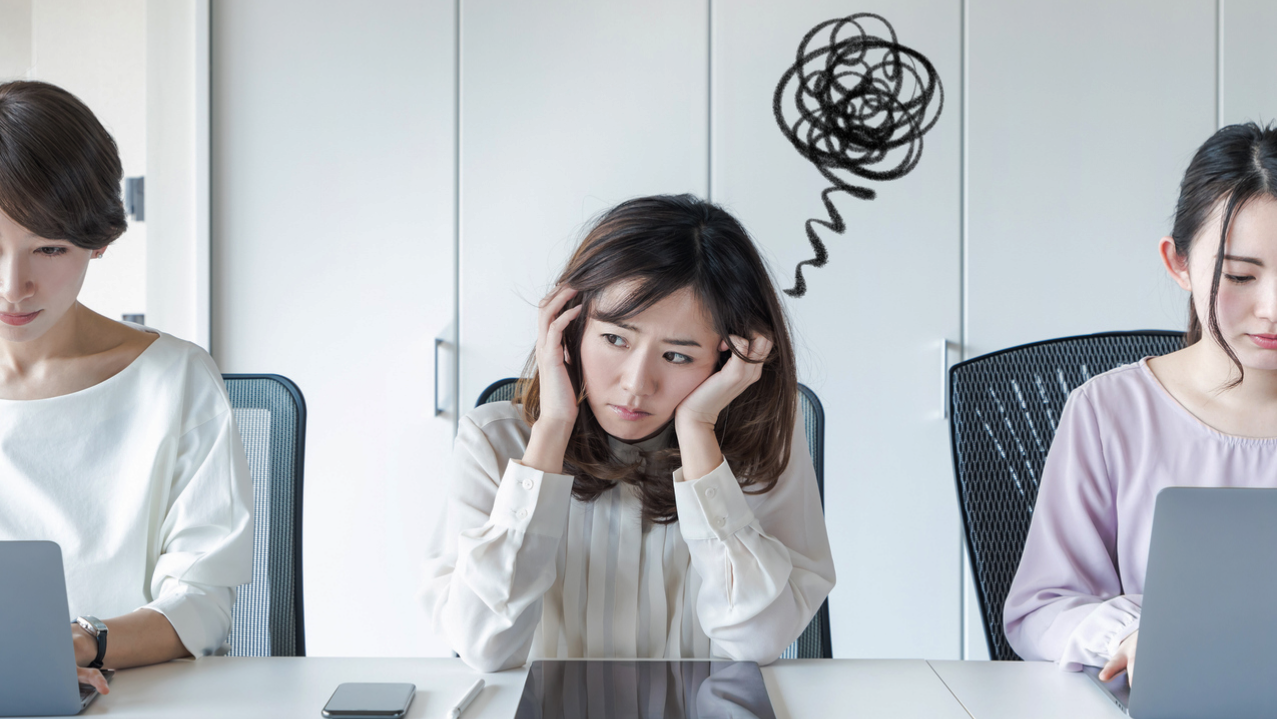Survey by Doctor Trust Reveals Age-Related Trends Among Japanese Working Women
A recent survey conducted by Doctor Trust Co., Ltd. sheds light on the stress levels experienced by working women in Japan, particularly focusing on age-related trends. The Stress Check Laboratory, a branch of Doctor Trust, utilizes data from over 2 million individuals who have undergone stress checks to conduct various analyses. In the year 2022, 18,389 respondents (around 14%) were identified as high-stress individuals. The survey aimed to analyze the distribution of high-stress rates among women across different age groups.
The Stress Check System was established to prevent mental health issues among employees and improve workplace environments by identifying and addressing high stress levels. Since December 2015, it has been mandatory for workplaces with 50 or more employees to conduct annual stress checks. The high-stress rate indicates the proportion of individuals identified as being in a high-stress state among those who underwent the examination. High-stress individuals are characterized by a heightened awareness of stress symptoms and significant workloads coupled with inadequate support from their surroundings.
Stress Peaks for Women at 32 and 37, Declines after 58
The survey findings revealed that high-stress rates among women remain consistently high from ages 28 to 40, reaching peaks at 32 and 37 years. However, after surpassing 58 years of age, high-stress rates tend to decrease significantly. Figure 1 illustrates the distribution of stress levels among female participants aged 18 to 65, with the rate of high-stress individuals (E rating) recorded at 13.94%.

Further analysis based on the data of high-stress individuals showed that stress rates among women are highest in their late 30s, with a continuous decrease observed after age 58. Figure 2 provides insights into the age-specific distribution of high-stress rates among women over the past four years. The highest rates were observed in the “early 30s” for the 2019-20 fiscal year and in the “late 30s” for the 2021-22 fiscal year. This trend indicates higher stress rates among individuals in their 30s, which may persist into the future. Conversely, women aged 60–65 consistently exhibited the lowest stress rates over the same period.

Figure 3 further depicts the age-specific high-stress rates among women, highlighting that the highest rates were observed at 37 years (16.92%) and 32 years (16.91%), followed by ages 38, 30, and 31. In contrast, the lowest rates were recorded among women aged 65, 64, 63, 62, and 61 years. After age 58, there was a notable decrease in high-stress rates with increasing age. Additionally, the period from 28 to 40 years consistently exceeded a 15% high-stress rate.

Challenges in Work-Life Balance Explored
The investigation into the relationship between women’s ages and high-stress rates suggests sustained high levels from ages 28 to 40, with peaks at 32 and 37 years. This trend is further supported by data from the past four years, indicating higher stress rates among individuals in their 30s. Factors such as delayed marriage and childbirth, as well as the challenge of managing work-life balance, particularly as more women take on managerial roles, may contribute to heightened stress levels among women in their 30s and 37s.
Summary
In conclusion, the survey highlights the need for effective stress management techniques, especially for women in their 30s, to alleviate the burden of high stress levels. By understanding the age-related trends in stress among working women, employers and policymakers can implement targeted interventions to support mental well-being in the workplace.
Survey Details:
Survey Period: April 1, 2022, to March 31, 2023
Survey Target: A portion of the companies and organizations that contracted Doctor Trust’s Stress Check Implementation Service for the fiscal year 2022
Effective Respondents: 131,912 individuals
The original article (Japanese) can be found at the following link:
https://kyodonewsprwire.jp/release/202403127886




